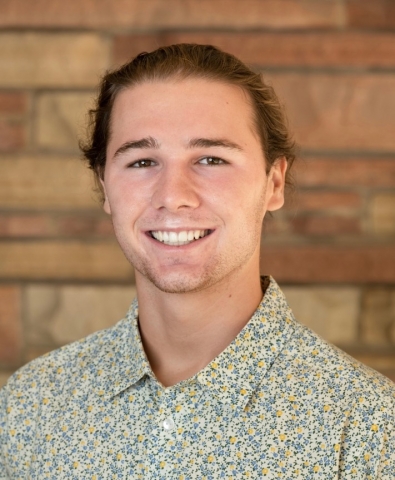As a dual-degree student pursuing both a Doctor of Veterinary Medicine and a PhD in Pathology at Colorado State University, Jesse Cole is tackling one of the most perplexing scientific challenges of our time: understanding how neurodegenerative brain diseases develop and spread.
Cole’s research focuses on chronic wasting disease (CWD), a fatal neurological disorder affecting deer, elk, and moose. Belonging to the same family of prion diseases as mad cow disease, CWD is characterized by a misfolded protein that leads to progressive brain damage.
“There is currently no cure or treatment,” Cole explained. “And despite its severity, we still don’t fully understand the mechanisms behind how this disease manifests in the host.”
Through his Ph.D. research, Cole is investigating the role of extracellular vesicles—tiny nanoparticles involved in cell communication—as potential transporters of the misfolded proteins that cause CWD. By uncovering these pathways in animals, his work could shed light on the mechanisms behind similar human diseases, such as Creutzfeldt-Jakob disease, Alzheimer’s, and Parkinson’s.
“The long-term hope is that this research will contribute to developing diagnostic tools, mitigation techniques, and even therapeutic strategies—not just for wildlife diseases but for human neurodegenerative disorders as well,” he said.
Cole’s academic journey into disease research began at the University of California, Santa Cruz, where he earned a bachelor’s degree in molecular, cell, and developmental biology. There, he worked in a lab studying pregnancy dynamics in northern elephant seals—an experience that sparked his fascination with reproductive biology. That early exposure to research later evolved into a passion for infectious disease, ultimately leading him to the intersection of both fields.
Today, in addition to his primary research, Cole is exploring the potential for vertical transmission of chronic wasting disease from mother to fetus, once again focusing on extracellular vesicles as key players.
His work is made possible by support from the ARCS Colorado chapter.
“The funding from ARCS has been incredible,” he said. “Not only has it relieved financial stress, but it’s allowed me to focus fully on my studies and research. It’s also introduced me to an amazing network of fellow ARCS Scholars, which has been a great bonus.”
Eventually, he hopes to become a board-certified anatomic pathologist. With his unique combination of veterinary training and cutting-edge research, Cole is paving the way for scientific breakthroughs that may one day help unravel the mysteries of brain disease in both animals and humans.

